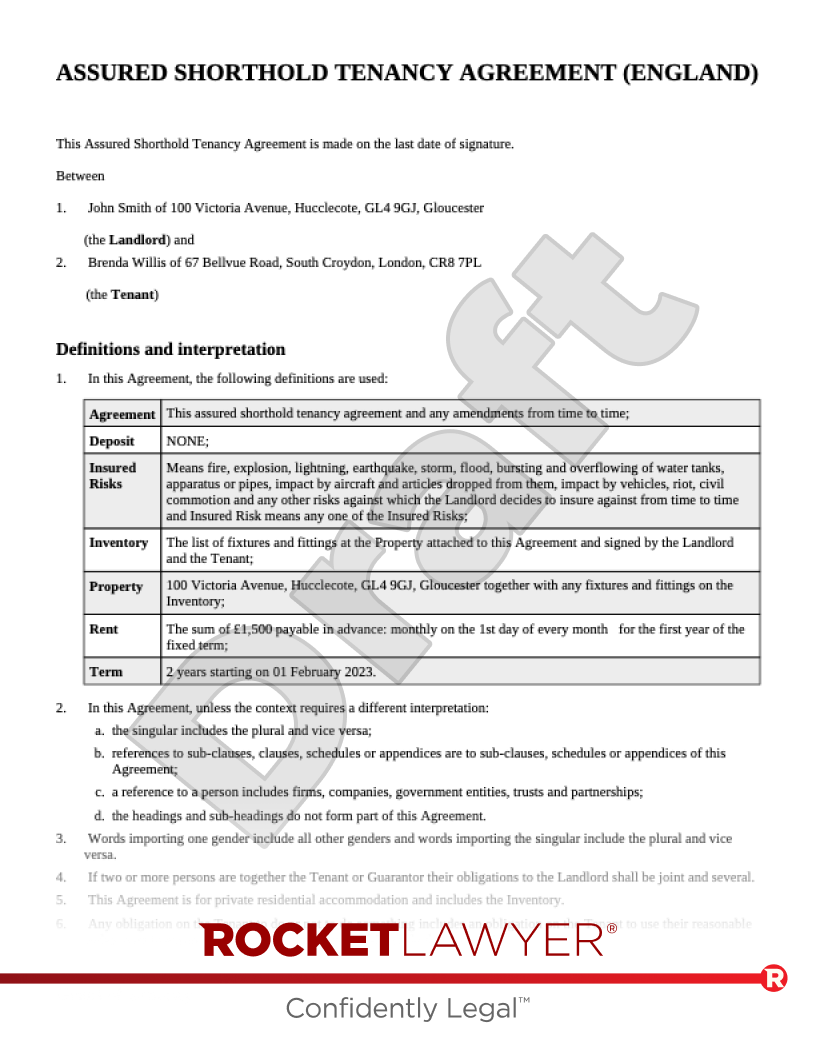| Action |
(✔) |
| When you rent out property make sure you comply with any laws and regulations and other practical things you should consider. You should also note that the highly regulated nature of the modern buy-to-let property marketplace has created numerous obligations and rights for tenants and owners which are legally enforced with varying degrees of success. |
|
| Select a letting document that is most appropriate for you and your needs:
|
|
| Consider whether you need a licence. It will be required if:
|
|
| Understand the circumstances where a residential tenant is entitled to a refund or repayment of rent they have paid. |
|
| Be aware of what is considered a retaliatory or 'revenge' eviction. This occurs when a landlord tries to evict a tenant who has asked for repairs or complained about the condition of their home. For ASTs that started or were renewed on or after 1 October 2015, a tenant cannot be evicted, unless their landlord proves they're at fault (eg because they didn't pay the rent) or the term of the tenancy has come to an end. |
|
| As a landlord, you need to be aware of the rules governing HMOs and your obligations relating to gas, electrical and fire safety. |
|
| Create a timeline for your tenancy. At the end of a tenancy, the tenancy agreement is automatically converted into a periodic tenancy unless an Eviction notice is served. |
|
| Once you have selected a tenant, you may wish to take a holding deposit from your prospective tenant to take the property 'off the market'. This is to hold the property for the tenant prior to checks being made and the tenancy contract being signed. Use an Initial holding deposit form to set out the terms attached to the deposit. |
|
| After selecting your tenant, you may wish to obtain appropriate references such as credit checks or character references from a previous landlord to ensure you best protect yourself and your property. |
|
| Whilst credit checks and other referencing are voluntary, landlords in England are legally obliged to carry out a 'right to rent' check on each tenant on the letting document. |
|
| Before issuing a letting document, ensure you’re aware of tenants' rights such as the right to safety, right to a house that is in good repair and fit for human habitation, right to quiet enjoyment and right to deposit protection. You should also be aware of the rules governing rent increases, deposits and best practice for charging utilities. |
|
| Once your letting document is signed, you may wish to take a deposit. If a deposit is taken by landlords of assured shorthold tenants (with rent of up to £100,000 per year), the handling of the monies must comply with the tenancy deposit protection scheme. |
|
| Before your tenants move in, all private residential landlords must make sure their properties are safe and have electrical safety checks. |
|
| Ensure you have the right documents to give to your tenants before or on the day they move in, including:
|
|
| Consider taking out landlord insurance. Whilst this isn’t mandatory, landlord insurance can provide peace of mind when it comes to sudden repairs, non-payment of rent or damage to the contents and/or property. Note that landlord insurers may request or require you to carry out appropriate referencing on the tenants you have selected. |
|
| You may wish to create an Inventory to record and agree the condition of items in a rented property before your tenants move in. This will minimise misunderstandings in the future and benefit and protect both the landlord and tenant. |
|
To find out more, read Student lettings, Taking in a lodger, Utility bills and Rent a room scheme and tax.




